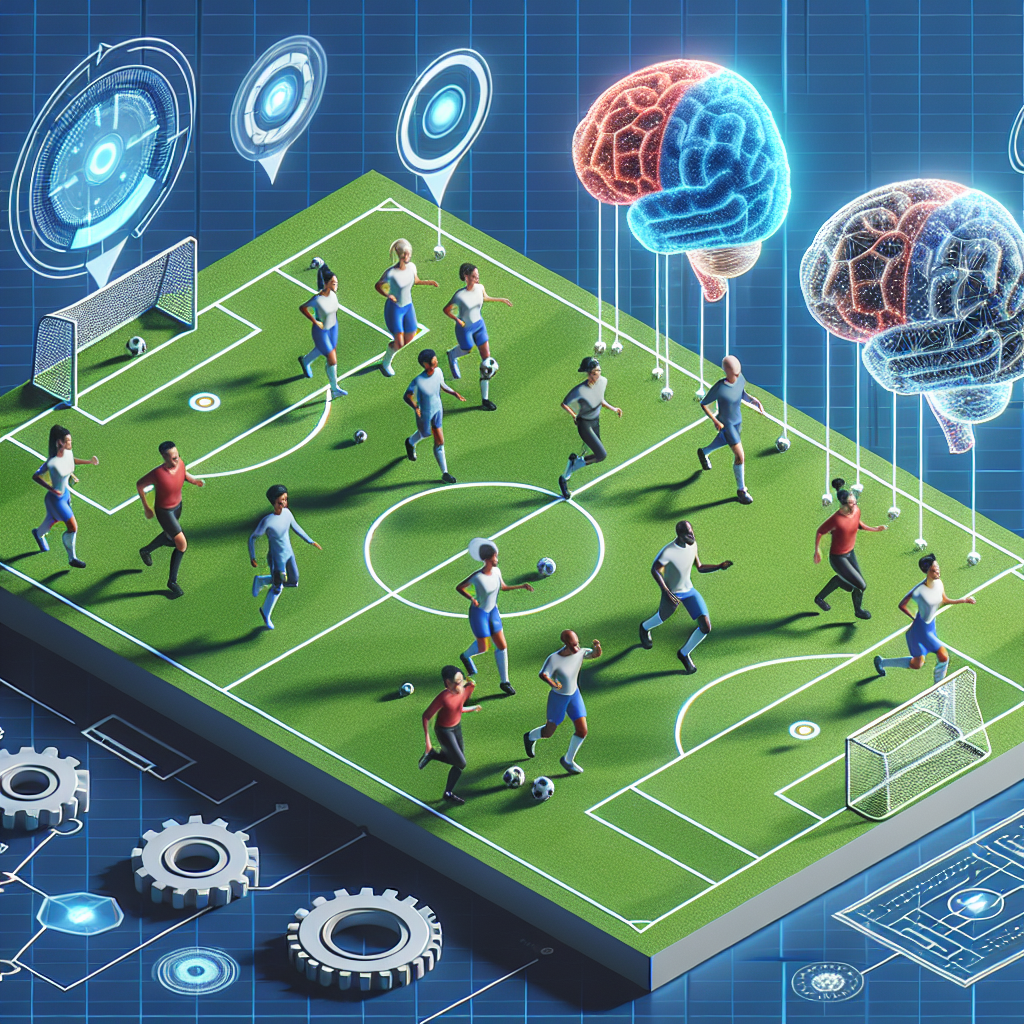Artificial Intelligence (AI) has become a game-changer in the sports industry, especially when it comes to improving team performance analysis. With the help of AI technology, coaches and teams can now analyze and track player performance in real-time, make data-driven decisions, and gain a competitive edge over their opponents. In this article, we will explore how AI is revolutionizing sports team performance analysis and the benefits it brings to the table.
AI in Sports Team Performance Analysis
AI technology has been integrated into various aspects of sports team performance analysis, including player tracking, game analysis, injury prevention, and talent scouting. Let’s take a closer look at how AI is being used in each of these areas:
1. Player Tracking: AI-powered player tracking systems use cameras and sensors to collect data on player movements, speed, distance covered, and other performance metrics during games and training sessions. This data is then analyzed by AI algorithms to provide coaches with valuable insights into player performance and fitness levels. By tracking and analyzing player data in real-time, coaches can make informed decisions about substitutions, tactics, and game strategies to maximize team performance.
2. Game Analysis: AI algorithms can analyze game footage and provide coaches with detailed insights into player positioning, ball movement, shot accuracy, and other key performance indicators. This allows coaches to identify patterns, trends, and areas for improvement, leading to more effective training sessions and game plans. AI-powered game analysis tools can also help teams scout opponents, analyze their strengths and weaknesses, and develop strategies to exploit them during games.
3. Injury Prevention: AI technology can help teams prevent injuries by monitoring players’ biomechanics, movement patterns, and workload levels. By analyzing this data, coaches can identify potential injury risks and adjust training programs to reduce the likelihood of players getting injured. AI-powered injury prevention systems can also track players’ recovery progress, recommend rehabilitation exercises, and provide personalized training programs to help players return to full fitness faster.
4. Talent Scouting: AI algorithms can analyze vast amounts of player data, such as performance statistics, video footage, and scouting reports, to identify talented players and potential recruits for teams. By using AI-powered talent scouting tools, teams can streamline the recruitment process, reduce bias, and make data-driven decisions about player acquisitions. This allows teams to build stronger, more competitive rosters and increase their chances of success on the field.
Benefits of Using AI in Sports Team Performance Analysis
The use of AI technology in sports team performance analysis offers a wide range of benefits for coaches, teams, and players. Some of the key benefits include:
1. Data-driven Decision-Making: AI algorithms can process and analyze large volumes of data quickly and accurately, providing coaches with valuable insights into player performance, game strategies, and opponent scouting. By making data-driven decisions, coaches can optimize team performance, improve training programs, and maximize player potential.
2. Real-time Feedback: AI-powered player tracking systems can provide coaches with real-time feedback on player performance, allowing them to make instant adjustments to tactics, substitutions, and game plans. This real-time feedback helps teams stay ahead of the competition and adapt to changing game situations more effectively.
3. Injury Prevention: AI technology can help teams prevent injuries by monitoring players’ workload levels, biomechanics, and movement patterns. By identifying potential injury risks early on, coaches can adjust training programs, reduce player fatigue, and minimize the likelihood of players getting injured.
4. Improved Talent Scouting: AI-powered talent scouting tools can help teams identify talented players and potential recruits more efficiently and accurately. By analyzing player data and performance metrics, teams can make informed decisions about player acquisitions, build stronger rosters, and increase their chances of success on the field.
5. Competitive Advantage: By leveraging AI technology for sports team performance analysis, teams can gain a competitive edge over their opponents. AI algorithms can help teams identify weaknesses in their game, exploit opponents’ vulnerabilities, and develop winning strategies that give them an edge on the field.
FAQs
Q: How does AI technology track player performance during games?
A: AI-powered player tracking systems use cameras and sensors to collect data on player movements, speed, distance covered, and other performance metrics. This data is then analyzed by AI algorithms to provide coaches with valuable insights into player performance and fitness levels.
Q: Can AI technology help prevent injuries in sports?
A: Yes, AI technology can help prevent injuries in sports by monitoring players’ biomechanics, movement patterns, and workload levels. By analyzing this data, coaches can identify potential injury risks and adjust training programs to reduce the likelihood of players getting injured.
Q: How can AI technology improve talent scouting in sports?
A: AI algorithms can analyze vast amounts of player data, such as performance statistics, video footage, and scouting reports, to identify talented players and potential recruits for teams. By using AI-powered talent scouting tools, teams can make data-driven decisions about player acquisitions and build stronger, more competitive rosters.
Q: What are the key benefits of using AI in sports team performance analysis?
A: The key benefits of using AI in sports team performance analysis include data-driven decision-making, real-time feedback, injury prevention, improved talent scouting, and gaining a competitive advantage over opponents.
In conclusion, AI technology is revolutionizing sports team performance analysis by providing coaches with valuable insights into player performance, game strategies, and opponent scouting. By leveraging AI algorithms for player tracking, game analysis, injury prevention, and talent scouting, teams can optimize team performance, prevent injuries, improve talent scouting, and gain a competitive edge over their opponents. As AI technology continues to evolve, we can expect to see even more innovative applications in sports team performance analysis that will help teams achieve greater success on the field.

